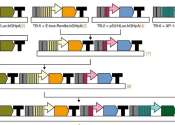Killing the seeds of cancer: A new finding shows potential in destroying cancer stem cells
Scientists at The University of Toledo investigating improvements to a commonly used chemotherapy drug have discovered an entirely new class of cancer-killing agents that show promise in eradicating cancer stem cells.
Jul 8, 2019
0
2









